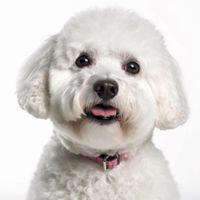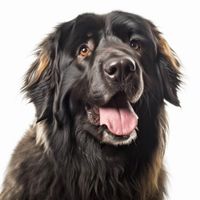Airedale Terrier - vs - Bichon Frise - vs - Newfoundland
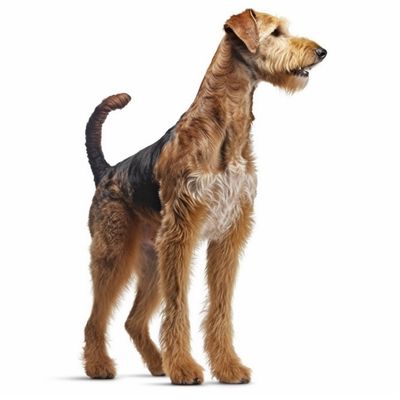
Airedale Terriers are medium-sized dogs, weighing 40-65 lbs, with a height of 22-24 inches.
Airedale Terriers have a high energy level and require regular exercise and mental stimulation.
Airedale Terriers need a significant amount of exercise, including daily walks, runs, and opportunities for play and exploration.
Airedale Terriers are intelligent and trainable, but can be independent thinkers. Consistent, positive reinforcement is essential.
Airedale Terriers are highly intelligent dogs and excel in various dog sports and activities, especially those involving agility and tracking.
Airedale Terriers can adapt to different living situations, but they need plenty of space and exercise to thrive.
Airedale Terriers are good with children when properly socialized and supervised.
Airedale Terriers can get along well with other pets, especially when raised together.
Airedale Terriers can tolerate colder temperatures, thanks to their dense, wiry coats.
Airedale Terriers can tolerate hot climates but need to be monitored for signs of overheating during exercise.
Airedale Terriers have a wiry coat that sheds minimally, making grooming relatively easy.
Airedale Terriers require regular grooming, including brushing and occasional hand-stripping or clipping to keep their coats clean and healthy.
Airedale Terriers have average bark tendencies and may bark for various reasons, such as alerting their owners or during playtime.
Airedale Terriers are generally healthy dogs but may still require regular veterinary checkups and preventative care.
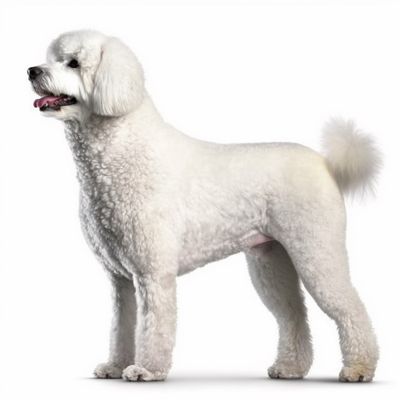
Bichon Frises are small dogs, weighing 10-20 lbs and standing 9.5-11.5 inches tall.
Bichons have a moderate energy level, enjoying playtime and cuddles in equal measure.
Daily exercise, like walks or playtime, keeps Bichons happy and helps prevent boredom.
Bichons are intelligent and trainable, but may require patience and consistency.
Bichons are smart dogs that enjoy learning new commands, tricks, and problem-solving.
Bichons adapt well to various environments, from apartments to larger homes.
Bichons are gentle, playful, and affectionate, making them excellent companions for children.
Bichons generally get along well with other pets, including dogs and cats, when socialized properly.
Bichons can tolerate cold weather, but it's important to provide proper shelter and warmth.
Bichons can handle warm climates, but ensure they have access to shade, water, and avoid excessive exercise.
Bichons have a low-shedding coat, making them a good option for people with allergies.
Bichons require regular grooming to maintain their curly coats, including brushing, trimming, and bathing.
Bichon Frises have average bark tendencies and may bark for various reasons, such as alerting their owners or during playtime.
Bichon Frises are generally healthy dogs but may still require regular veterinary checkups and preventative care.
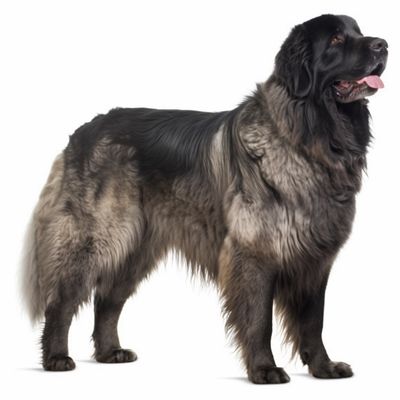
Newfoundlands are extra-large dogs, weighing 100-150 lbs, with a height of 26-28 inches.
Newfoundlands have a medium energy level and enjoy regular exercise, but they are not as demanding as some other breeds.
Newfoundlands require regular exercise, including daily walks and playtime, to keep them happy and healthy.
Newfoundlands are intelligent dogs, but they can be independent thinkers, making training moderately challenging.
Newfoundlands are intelligent dogs and are known for their problem-solving abilities.
Newfoundlands can adapt to various living situations, but they need enough space to accommodate their large size.
Newfoundlands are known for their gentle and protective nature towards children, making them great family dogs.
Newfoundlands generally get along well with other pets when properly socialized.
Newfoundlands are well-suited to cold climates due to their thick, double-layered coats.
Newfoundlands may struggle in hot climates due to their thick, double-layered coats.
Newfoundlands have seasonal shedding and require regular brushing to manage their thick coats.
Newfoundlands require regular grooming, including daily brushing and occasional trims, to maintain their thick, double-layered coats.
Newfoundlands bark occasionally, usually only when necessary or provoked.
Newfoundlands may have some health issues, requiring regular veterinary checkups and preventative care.


